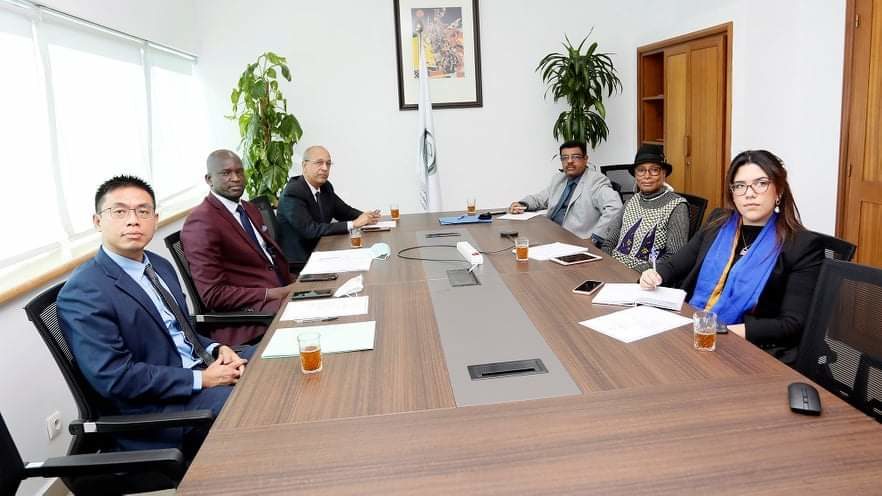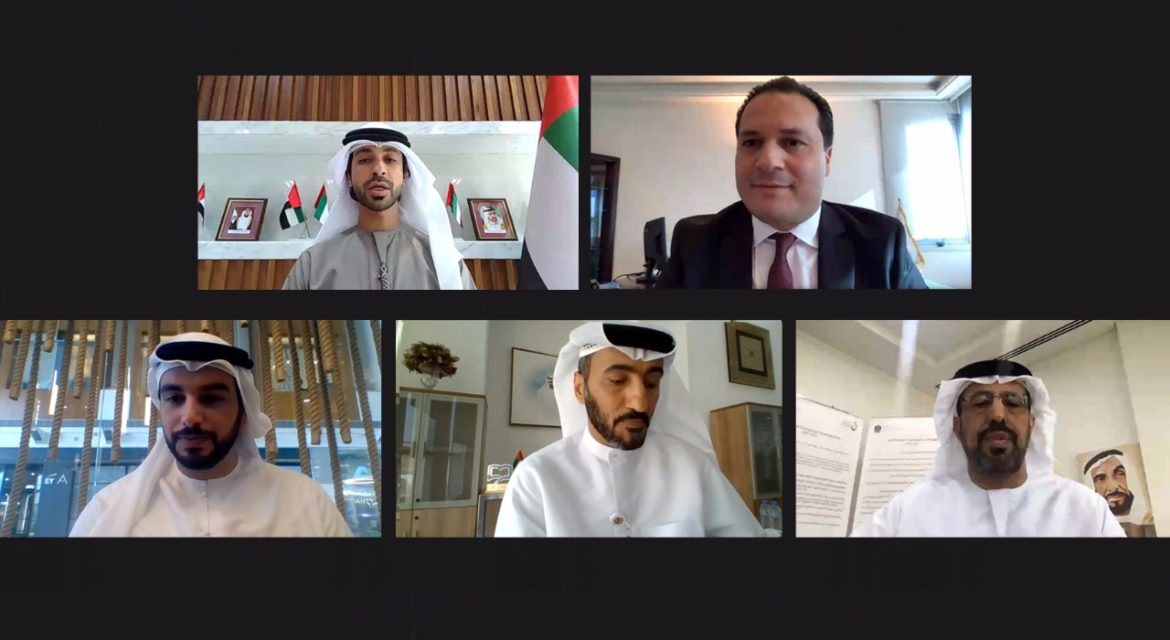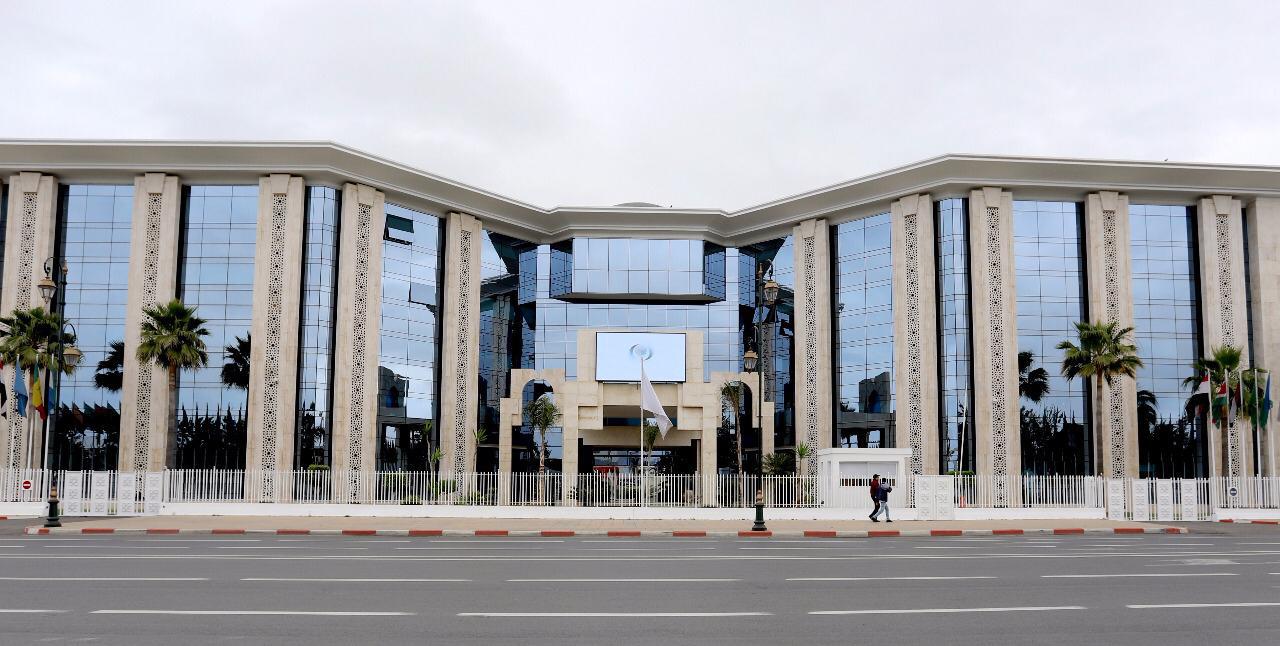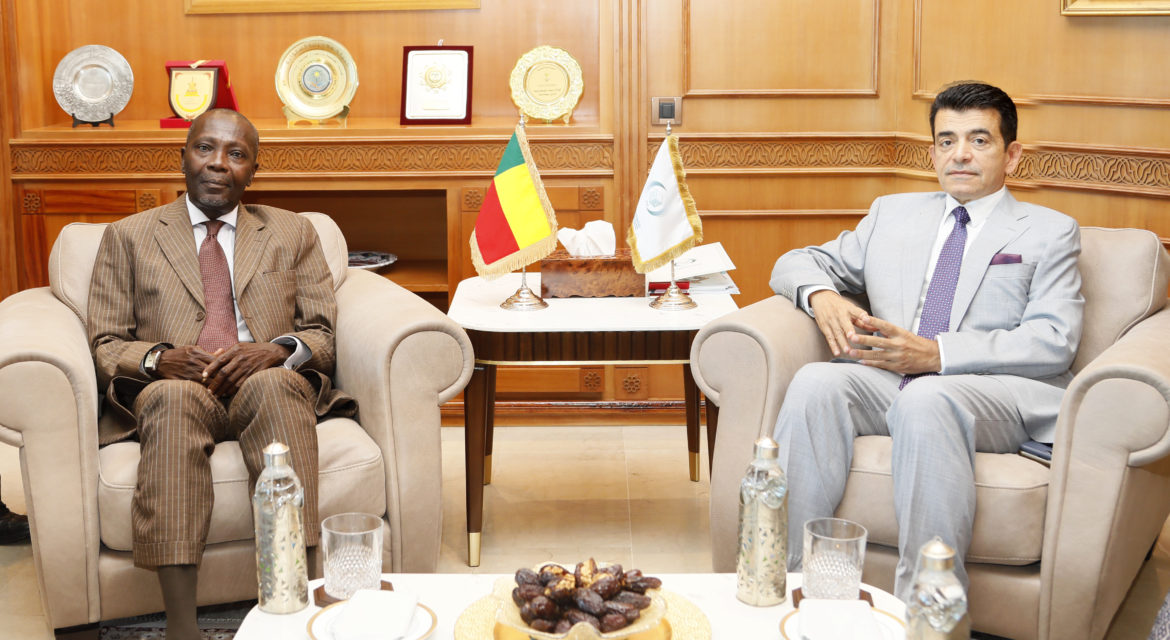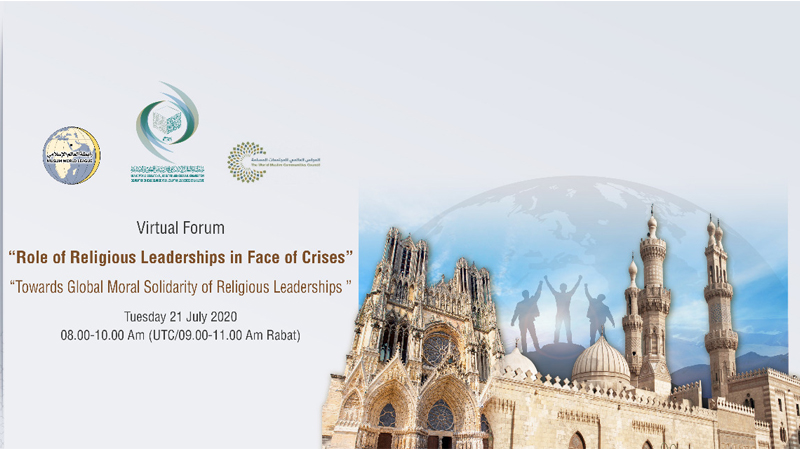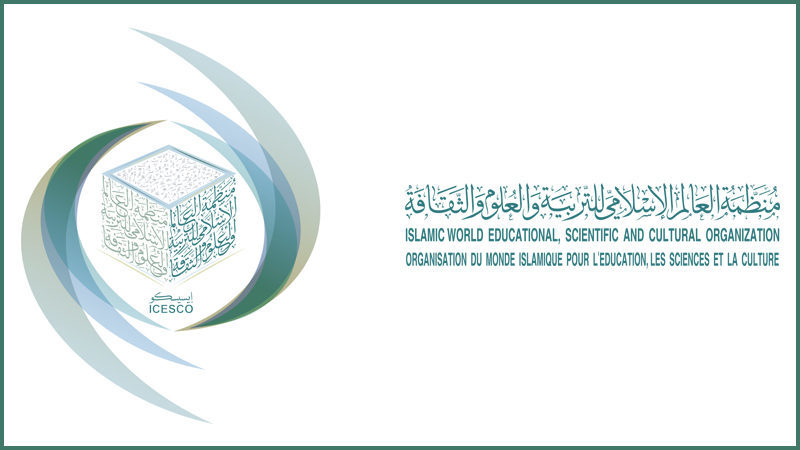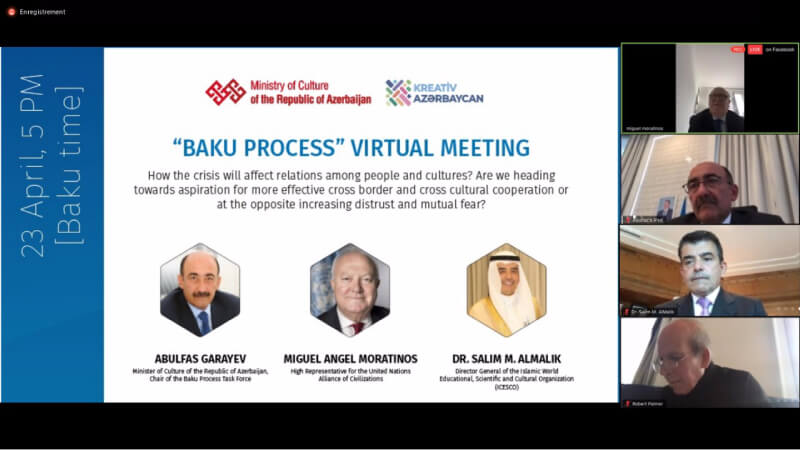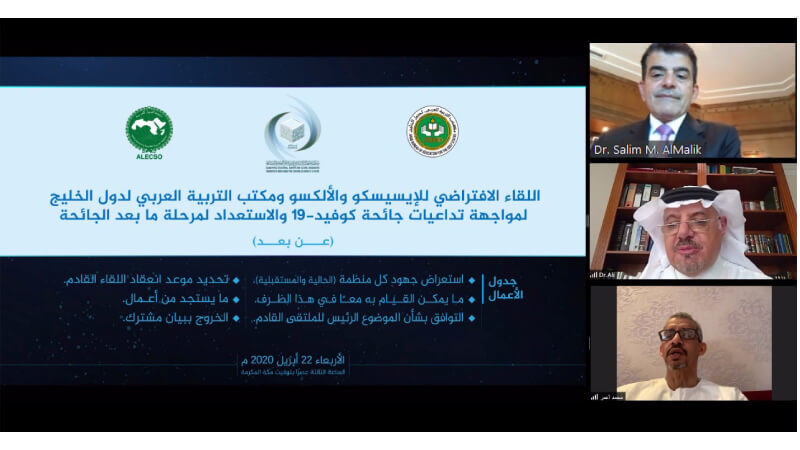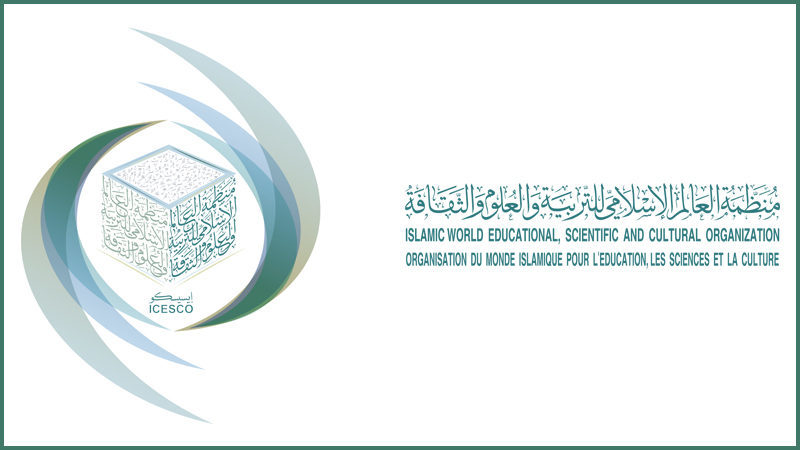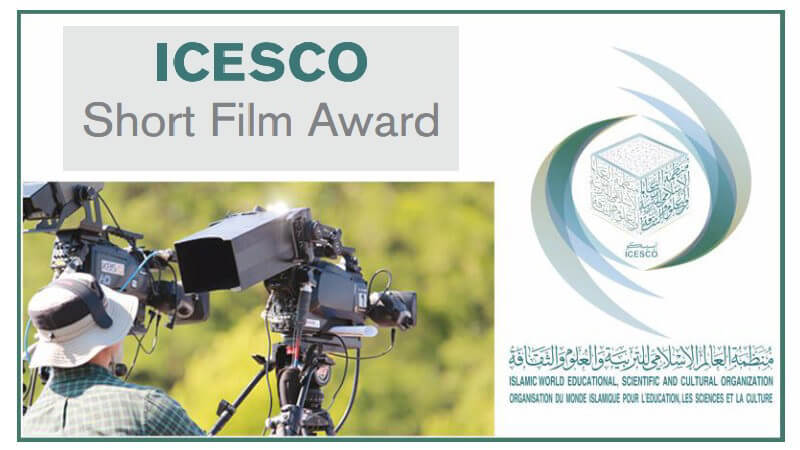The Islamic World Educational, Scientific and Cultural Organization
(ICESCO), the Arab League Educational, Cultural and Scientific Organization
(ALECSO), and the Arab Bureau of Education for the Gulf States (ABEGS) today
held a video conference, with the participation of Dr. Salim M. AlMalik, ICESCO
Director General, Dr. Mohamed Ould Amar, ALECSO Director General, and Dr. Ali
Abdul Khaliq Al-Qarni, ABEGS Director General. The teleconference aims to coordinate
efforts of the three parties on the implementation of the initiatives launched
by each party to counter the adverse effects of Covid-19 on the fields of
education, science and culture, and agree on specific mechanisms to implement a
set of recommendations as decided upon.
At the outset of the meeting, ICESCO Director General reviewed the
major initiatives launched by the Organization to counter the negative effects
of Covid-19, including:
1. Launch of “ICESCO Prize for Fighting
against Coronavirus”, with US$200,000 in prize money;
2. Launch of “ICESCO Comprehensive Humanitarian
Coalition” based on field projects, executive programmes, strategic
anticipatory plans for the Islamic world, and an endowment fund;
3. Launch of “ICESCO Digital Home” which provides digital
contents in ICESCO’s areas of action;
4. “ICESCO Short Films Award” which aims to encourage
creative film production among youth and set up ICESCO Library of Short Films;
5. Production of awareness-raising videos about the importance of
prevention from the spread of Covid-19 in Arabic, English, and French;
6. Providing technical support to establish units and train local community
members to produce low-cost sanitizers in the several Member States;
7. Organization of a set of virtual conference and meetings in
ICESCO’s fields of action to examine the reality of the fields of education,
science, and culture amid the Covid-19 crisis, and anticipate their future in
Muslim countries.
Afterward, ALECSO Director General reviewed the major initiatives
launched by the Organization, including:
1. Launch of “ALECSO Initiative for Distance Learning and
Education”, organizing “distance training sessions for
teachers”, and installing the e-learning software (Moodle);
2. Establishing an interactive platform for the Secretaries General
of the Arab National Commissions and the Executive Council’s Members;
3. Holding the First Virtual Panel Discussion of the Secretaries
General of the Arab National Commissions and the Executive Council’s Members;
4. Holding teleconference meeting of the Standing Committee on Arab
Culture;
5. Organizing a distance training workshop (on statistics of
culture and entertainment) for the benefit of statistical agencies and the Arab
ministries of culture;
6. Translating the book “Facilitating flexible learning during
the disruption of education – Chinese experience in maintaining the continuity
of learning during the spread of Covid-19” into Arabic, preparing a
glossary of Covid-19, and digitizing all the contents of the library of the
Organization and its external centers;
7. Preparing and publishing a prevention guide from the risks of
Covid-19 in Arabic, Chinese, French, and English, posting awareness-raising
video on Covid-19 in sign language, and designing an awareness-raising
infographic about the proper health behavior for the prevention of Covid-19.
Moreover, the ABEGS Director General reviewed the major initiatives
launched by the Bureau, including:
1. Launching the “Distance Education” website via ABEGS’s
electronic portal;
2. Providing free access, on the Bureau’s website, to one hundred
and sixty books on the Bureau’s products of its various educational science
programmes for teachers, educators and other people;
3. Organizing several teleconference meetings and forums in ABEGS’s
fields of action, most notably the Meeting of the Bureau Executive Council, and
the First Online Meeting of Secretaries General of the Center for Arabic
Language Education;
4. Participating in the academic meetings held at the international
level and transmitting the practices of countries to counter the effects of
Covid-19 on the educational sector;
5. Providing the guide of the training programmes and the
electronic services;
6. Publishing several brochures “Jossor electronic brochure on
distance education,” an information brochure entitled “How to help
your child in distance learning,” and “an awareness-raising brochure
for the Gulf and Arab family on dealing with children during the new
circumstances”;
7. Preparing an information booklet on adopting the digital
education to raise awareness of students, teachers, and schools’ principals
about distance education, and publishing “Your Awareness-raising Guide on
Covid-19”.
At the close of the meeting, the Directors General of ICESCO,
ALECSO, and ABEGS agreed on the need to put mechanisms to implement the
following recommendations:
1. Calling upon regional and international organizations, including
ALECSO and ABEGS, to join the Comprehensive Humanitarian Coalition launched by
ICESCO;
2. Calling for the establishment of the joint Arab-Islamic
observatory for disaster management,
crisis response, and risk reduction;
3. Developing a comprehensive joint training programme for
capacity-building and skills development for Arab teachers in the field of
distance education;
4. Accompanying Member States, particularly the countries most in
need, in promoting their efforts in distance education and seeking the support
of donors to strengthen their distance education infrastructure;
5. Monitoring and documenting the efforts and initiatives of the
three Organizations in dealing with the crisis triggered by Covid-19;
6. Adopting a joint programme for psychological and health
education to respond to crises;
7. Proposing “Covid-19… experience and prospects” as a
theme for the coming forum, due to be held in Riyadh in October 2020.


